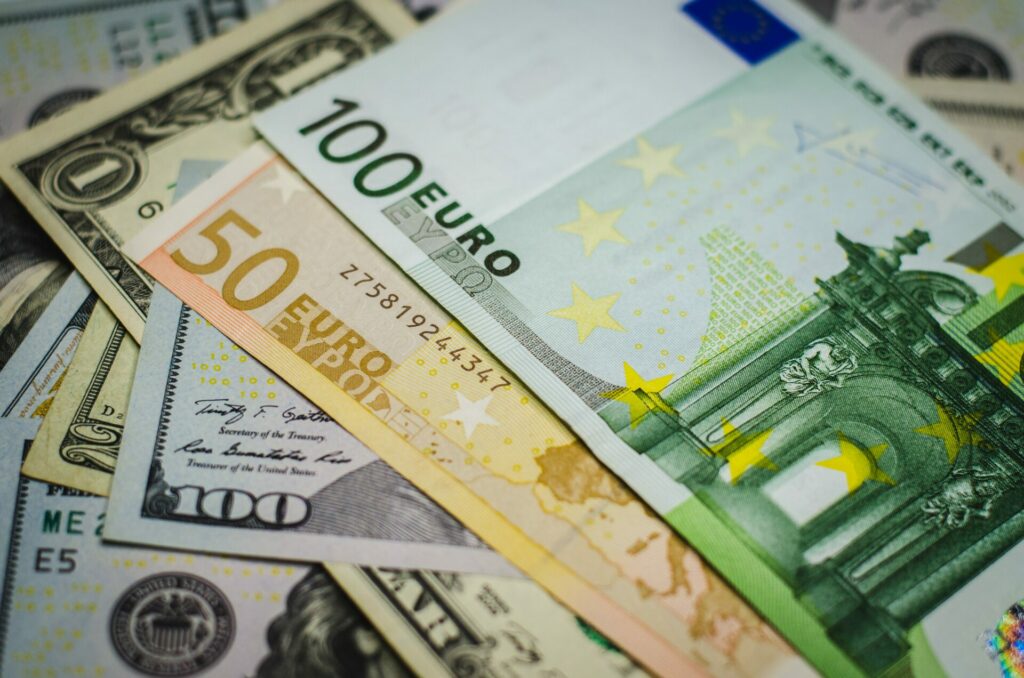The euro reached its highest value against the dollar since April on Monday, as an easing of economic conditions within the eurozone coupled with hawkish rhetoric from the European Central Bank (ECB) propelled the euro to $1.0927.
The latest peak represents an almost 15% increase compared to last summer, when surging energy prices caused the euro to plunge to a twenty-year low of $0.9536.
"The growth in confidence in the economic outlook, or at least the removal of a lot of the pessimism, is part of the euro story," Jane Foley, Head of Foreign Exchange Strategy at Rabobank, told Reuters. "Layered on top of that, it looks as if the ECB are going to carry on hiking interest rates fairly aggressively."
Despite this, many economists and banks still believe that the eurozone's economic outlook is far from rosy: l'Echo reports that investment bank JPMorgan forecasts that the eurozone will suffer a technical recession in the first quarter of this year, while the World Bank recently predicted 0% growth across the eurozone in 2023, a downward revision from its 1.9% forecast in June.
Reasons for the rise
One major factor behind the euro's rise is the dramatic recent fall in gas prices over the past several weeks, which, in turn, was precipitated by warmer-than-usual winter weather.
"Today we are witnessing the opposite of the energy crisis of 2022," Managing Director of Jefferies investment bank Sean Darby told l'Echo. "[But] this time with a positive supply shock for households and the trade balance of the eurozone, giving wings to the euro."
A second, and perhaps even more crucial reason for the euro's increase is the hawkish tone recently struck by the ECB, which has already increased its benchmark rate on four separate occasions this year as it attempts to curb the eurozone's soaring inflation rate.
On Thursday, ECB President Christine Lagarde informed the World Economic Forum at Davos that inflation is "still way too high", and that the ECB will "stay the course... so that we can return inflation to 2% in a timely manner".
Related News
- European Central Bank raises interest rate by 0.5 percentage point
- World Bank: Global recession 'perilously close'
Lagarde's remarks were subsequent echoed on Sunday by Klaas Knot, a member of the Governing Council of the ECB, who noted in an interview with La Stampa newspaper that the ECB will raise its benchmark interest rate by 50 basis points in both February and March this year, and suggested that further rate hikes can be expected until at least this summer.
"We made a step down in December from 75 to 50 basis points — that will be the pace for a multiple number of meetings," Knot said. "So that means at least the two in February and March. I do think that we will continue to be in tightening mode until the summer."
He added: "In the December data, we saw a first decline in headline inflation, but that was entirely due to base effects and lower energy inflation. We focus on core inflation where, unfortunately, there is no good news. Because it is still on the rise. Underlying inflationary pressures show no signs of abating yet."

